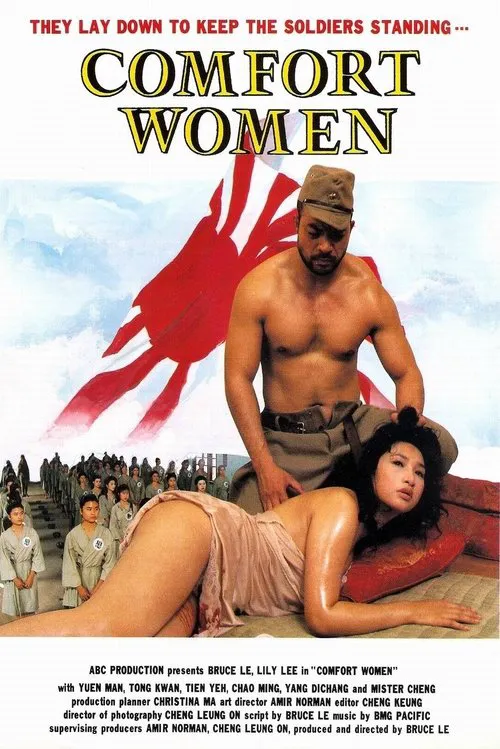Comfort Women

Plot
The Comfort Women is a 1968 Japanese film directed by Shohei Imamura, a critically acclaimed filmmaker known for his sensitivity towards the subject matter and his commitment to historical accuracy. Imamura's film is a powerful portrayal of the experiences of Japanese women who were forced into prostitution during World War II, a practice commonly referred to as the "Comfort Woman" system. The story begins with Tomi Akiyama (played by Noriko Yagi), a determined and idealistic young woman who works as a journalist. Alongside her boyfriend, Nakamura (played by Fumio Watanabe), she becomes increasingly concerned about the stories of Comfort Houses in China, where Japanese women are being coerced into prostitution. The Comfort Houses were establishments set up by the Japanese military in occupied territories to provide sex for soldiers. As they delve deeper into the story, Tomi and Nakamura decide to visit one of the Comfort Houses in an attempt to expose the truth. But things quickly take a dark turn when Tomi disguises herself as a new recruit and gains access to the facility. She is taken in by the matron of the house, a harsh and intimidating woman named Takano (played by Nobuko Otowa). Upon arrival, Tomi witnesses the harsh conditions and exploitation of the women within the Comfort House. She meets other women, each with their own story and struggles. There is Mingei, a young woman who is desperate to see her son, brought to the house by her husband. Another woman, Hirooka, is a bit of a free spirit, often cracking jokes and flirting with the soldiers. Meanwhile, Nakamura is consumed by his own personal struggles. The pressure on him to rescue Tomi, combined with the disturbing revelations about the Comfort House system, begins to take its toll. He starts to consider taking drastic action, but ultimately decides to take a more measured approach. Imamura's film was groundbreaking in its frank portrayal of the Comfort Woman system and the devastating effects it had on countless women. By presenting the true nature of the system and the people involved, he aimed to raise awareness and spark a national conversation about this dark period in Japanese history. Through the characters and stories within The Comfort Women, Imamura highlights the complexities and nuances of this difficult topic. The film is able to convey the suffering and exploitation endured by these women, while also acknowledging the humanity and agency they retained in the face of unimaginable hardship. Throughout the film, Imamura intersperses stock war footage and historical inter-titles to provide context and further emphasize the atrocities committed during the war. These narrative devices effectively convey the vast scale of the Comfort House system and the widespread nature of the wartime horrors that took place. In terms of visual storytelling, Imamura's use of cinematography is notable. His shooting style and camera angles effectively convey the bleak conditions and stark realities faced by these women. The use of black and white film stock adds to the overall sense of austerity and hardship. By tackling a difficult and painful subject with empathy and restraint, The Comfort Women presents a stark and honest portrayal of one of the most underreported aspects of World War II history. Shohei Imamura's skillful direction humanizes these women and raises awareness about the traumatic experiences they endured, making this a powerful film that continues to resonate with audiences today.
Reviews
Jack
A heartbreaking glimpse into a history of humiliation. A pain that can never be erased.
Amaya
A skillful tearjerker, but the director's execution falls short – Spielberg could have elevated this. Still, the love between the comfort woman and the soldier is genuinely touching; in such extreme circumstances, their affection feels exceptionally pure.
Preston
Compared to "Spirits' Homecoming," this film falls short by a wide margin.
Isaac
Having no prior experience with films of this genre, I lack a point of comparison,But judging by this film alone, I think it's quite good. Aside from the unrealistic aspect of everyone speaking Korean, and the Chinese girl's somewhat odd expressions, everything else is commendable.
Diego
It's disheartening to see such an important subject matter handled so poorly by the director.
Recommendations

